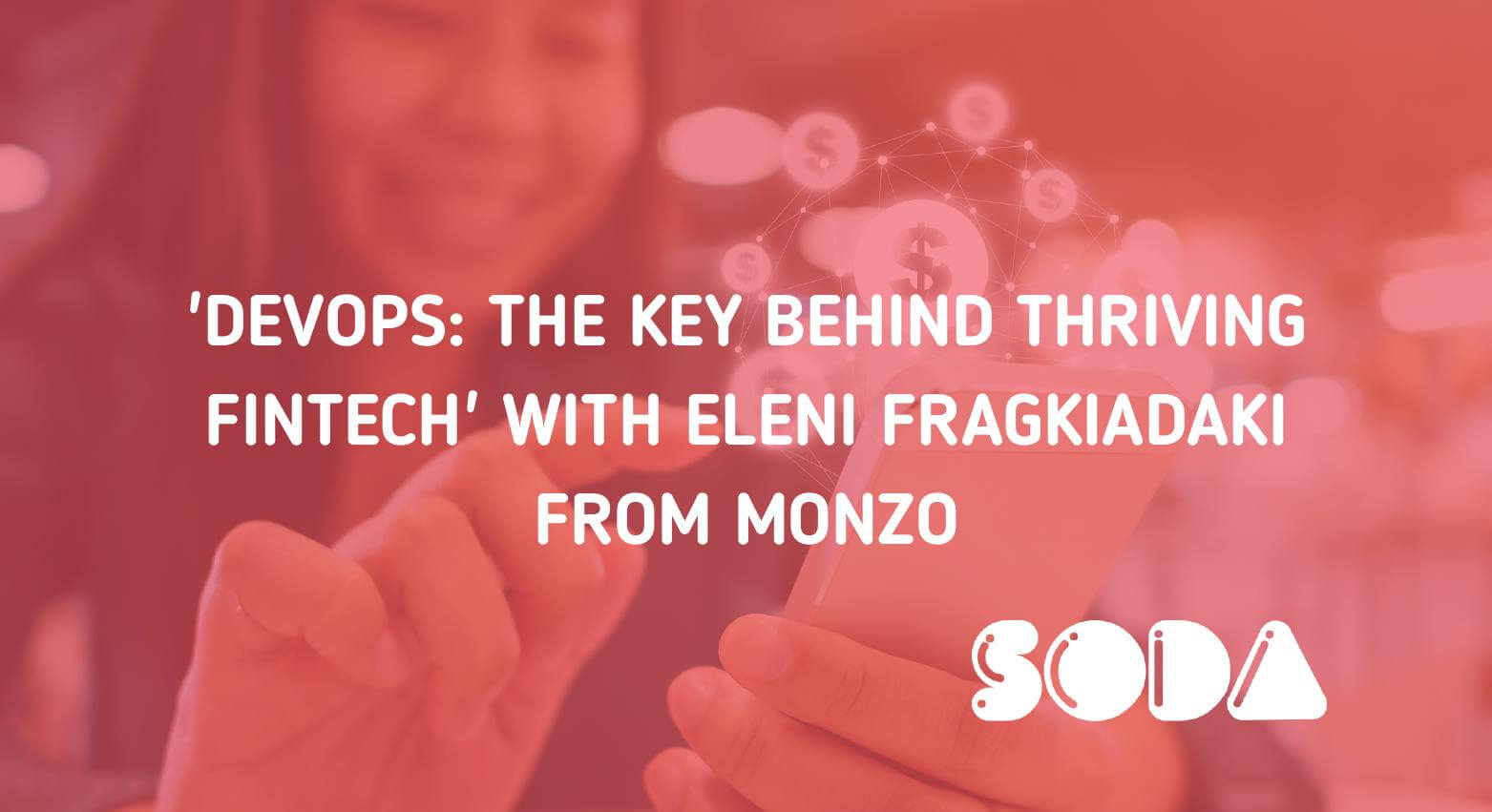
‘DevOps: The key behind thriving fintech’ with Eleni Fragkiadaki from Monzo
We sat down with Dr Eleni Fragkiadaki from Monzo to discuss the key behind thriving fintech at Monzo. ELENI IS A SOFTWARE ENGINEER AND TECH LEAD WITH MORE THAN 14 YEARS OF EXPERIENCE IN BUILDING APPLICATIONS, AUTOMATING MANUAL PROCESSES AND MIGRATING LEGACY CODE. SHE HAS WORKED WITH MULTIPLE LANGUAGES BUILDING A VARIETY OF SYSTEMS IN SEVERAL DIFFERENT INDUSTRIES AND HAD THE PLEASURE OF LEADING A NUMBER OF TEAMS IN THEIR JOURNEY. ELENI HAS BOTH AN ACADEMIC AND INDUSTRY BACKGROUND AND REALLY ENJOYS PERIODICALLY BLOGGING ABOUT ALL THINGS TECHNOLOGY.
WHAT INSPIRED YOU TO PURSUE A CAREER IN THE TECHNOLOGY INDUSTRY?
"As a child I quite liked math’s at school and computers just made sense. They were a new technology, with endless possibilities (even more than what I could imagine at the time), and learning how to work (and play) with them seemed fascinating to me.
From there everything was pretty clear, math’s and science at school, later on University studying Computer Science, followed by a Master’s in Applied Informatics and a PhD in Bibliographic databases and citation analysis. Software engineering became my main focus throughout my career as it allows someone to build something from nothing and also make it available and accessible to everyone!"
How can DevOps be applied to FinTechs?
"FinTechs in my opinion have the benefit of being relatively younger technology organisations. This means that when they were forming they had a lot of newer technologies at their disposal and processes that were developed with large scale systems in mind, which hopefully they have chosen to adopt.
For Monzo in particular the architecture, technologies and DevOps practices have been embedded in the way Engineering works from the very first stages. We are using a micro-services architecture that has grown and scaled a lot over the past few years.
This has only been possible because of all the thinking and effort that has gone into embedding the right tools and practices into how code is developed and deployed. The ease of use of all the internal tools and the ability that all Software Engineers have to successfully monitor and measure the performance of services is incredible. Our Platform team works very closely with the Engineers and I think this close collaboration and shared responsibility over the stability of our systems is what makes DevOps practices so widely integrated within our engineering organisation."
WHAT IS THE IMPORTANCE OF COGNITIVE DIVERSITY IN THE MODERN WORKPLACE?
"Cognitive diversity allows us to examine a problem from different angles and explore solutions that tackle different aspects of it. Since it’s very rare that a problem has only one solution, being able to list and weigh all the pros and cons of multiple solutions gives us a better chance to holistically resolve an issue and not “miss” something that someone with a slightly different viewpoint could have easily detected.
Together we are more creative in our problem solving, we learn faster and we grow as teams and individuals. To use a simple metaphor imagine a group of people getting together to paint a room. This group has only ever painted with solid colors, like red, green and blue. There is only one possible outcome here: the room will be painted with a color, maybe a different shade to the room next door but still. Imagine now adding some people in the mix that know how to do stripes, or dots, that have used wallpaper or even exposed bricks. That’s what diversity brings to the workplace."
WHAT CAN ORGANISATIONS DO TO ATTRACT MORE WOMEN IN THE TECH SPACE THAT THEY AREN’T DOING TODAY?
"In the past years I believe there has been a big shift in the way organisations approach women in all different sectors and this is such an amazing thing to see. Are we there yet? I don’t think so, but we are talking a lot more today about things that 10 or 15 years ago would have just been considered the status quo and unchangeable.
For me personally seeing more women attempting to pursue a career in the tech space is amazing. Breaking the barriers to entry for everyone who is interested in technology is really important and I think that starts even before people reach employment. Looking at schools and parents to really see what children are interested in, without any bias or expectation, without any predetermined view for their future.
Raising awareness for how someone (at any age) who is interested can learn more is key. Access to information and online courses has made this a lot more feasible than it was and sometimes all someone needs is a nudge and some resources to start with."
WHAT DO YOU FORESEE AS THE BIGGEST CHALLENGE FOR DEVOPS WITHIN FINTECH FOR THE FUTURE?
"For me DevOps is a set of technologies, processes and skills that evolves and grows over time. And this is the key here: DevOps practices need to continuously be refined and adjusted over time, the teams need to develop new skills and the technologies need to evolve and grow. The architecture designs and the platforms that we use need to eventually be replaced with newer more robust solutions in a stable and reliable way. You could say though that this process sits in the heart of what DevOps is all about and if someone embraces that, everything comes naturally."
